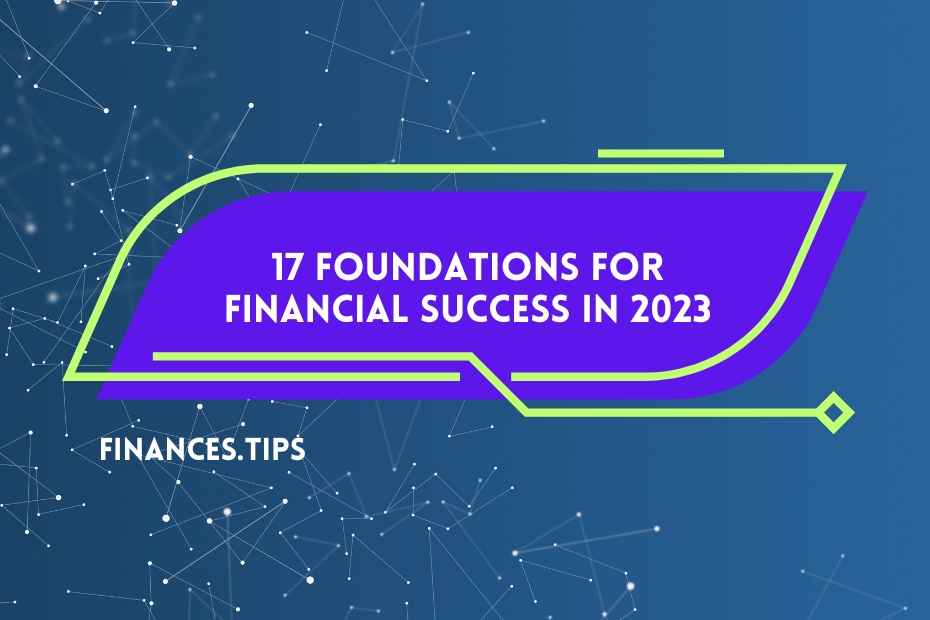The Importance of Financial Education
One of the challenges facing young adults today is the lack of formal education in personal finance.
With only a handful of states requiring personal finance courses in high school, many young individuals enter adulthood without the necessary knowledge to manage their money effectively.
Taking the initiative to educate oneself on personal finance is crucial for building a strong financial future.
Exercise Patience: Paying with Cash, Not Credit
Practicing patience and self-control when it comes to finances is key.
Instead of relying on credit cards, young adults should aim to pay with cash or debit cards.
This approach helps to avoid accumulating debt and the interest that comes with it.
While credit cards can be useful for building credit, it’s important to use them sparingly and primarily for emergencies.
Mastering the Art of Budgeting
Learning to budget is a fundamental skill that young adults should develop early on.
By creating a personal spending plan, individuals can track their income and expenses, ensuring that they don’t exceed their earnings.
Tracking everyday expenses, such as morning coffees or dining out, can provide eye-opening insights and enable individuals to make necessary adjustments to their spending habits.
Building an Emergency Fund
“Pay yourself first” is a mantra that young adults should adopt.
Setting aside money for emergencies is crucial for financial stability.
Even those on tight budgets can contribute to an emergency fund each month.
By making it a non-negotiable expense, individuals can gradually build up their emergency fund and gain peace of mind knowing they have a financial safety net.

Embrace the Power of Compound Interest: Saving for Retirement
Saving for retirement may seem far off for young adults, but starting early can have a tremendous impact.
Thanks to the power of compound interest, even small contributions made in one’s twenties can grow significantly over time.
Taking advantage of company-sponsored retirement plans, such as 401(k)s, can provide additional benefits like employer matching, which is essentially free money towards one’s retirement savings.
Understanding Taxes and Salary Negotiation
Monitoring taxes is essential for financial planning.
Understanding how salary increases can affect take-home pay is crucial when evaluating job offers or negotiating salaries.
Online calculators can help young adults determine their after-tax income, allowing them to make more informed decisions regarding their financial needs and savings goals.
Safeguarding Health and Wealth
Protecting one’s health and wealth is essential.
Young adults should explore health insurance options, such as employer-provided plans or the Health Insurance Marketplace, to ensure they have coverage in case of unexpected medical expenses.
Additionally, obtaining renter’s insurance and disability insurance can provide further protection against potential financial setbacks.
Seek Professional Guidance
While personal finance can be self-taught, seeking professional guidance can be invaluable.
Fee-only financial planners offer unbiased advice and can assist young adults in managing their money effectively.
Unlike commission-based advisors, fee-only planners have no vested interest in specific investments, allowing them to provide recommendations based solely on the client’s best interest.
Taking Control of Your Financial Future
Mastering personal finance is a lifelong journey, and young adulthood is the ideal time to start.
By implementing these eight financial tips, young adults can establish a solid foundation for their financial future.
Through financial education, budgeting, saving, and seeking professional guidance, individuals can navigate the complexities of personal finance with confidence and build a prosperous financial life.
The Power of Education in Personal Finance
In today’s fast-paced and ever-changing financial landscape, it’s essential for young adults to equip themselves with the knowledge and skills necessary to navigate the complexities of personal finance.
While formal education on financial matters may be lacking, there are ample resources available to bridge the knowledge gap.
Taking the time to educate oneself through books, online courses, or attending seminars can provide valuable insights into budgeting, investing, and financial planning.
Setting Financial Goals and Priorities
A crucial step in achieving financial success is setting clear goals and priorities.
Whether it’s saving for a down payment on a home, paying off student loans, or building an investment portfolio, having a well-defined roadmap can keep young adults focused and motivated.
By prioritizing financial goals and aligning spending habits accordingly, individuals can make intentional choices that support their long-term objectives.
Embracing Frugality and Smart Spending
Practicing frugality doesn’t mean living a life of deprivation.
Instead, it involves making mindful choices about spending and identifying areas where expenses can be reduced.
Cutting back on unnecessary expenses, such as dining out or impulse purchases, can free up funds to be allocated toward savings, investments, or debt repayment.
Developing smart spending habits early on can have a significant impact on long-term financial stability.

Diversifying Income Streams
Relying solely on a single source of income can be risky in an unpredictable economy.
Young adults can proactively seek opportunities to diversify their income streams by exploring side hustles, freelancing, or starting a small business.
Diversification not only provides additional financial security but also allows individuals to develop new skills and broaden their professional network.
Establishing an Investment Strategy
Investing is a powerful tool for wealth accumulation, and young adults have the advantage of time on their side.
By starting early and adopting a long-term investment strategy, individuals can take advantage of compounding returns and potentially grow their wealth exponentially.
It’s essential to research and understand different investment options, such as stocks, bonds, mutual funds, or real estate, and seek guidance from financial professionals if needed.
Managing Debt Responsibly
Debt can become a significant burden if not managed properly.
Young adults should approach debt with caution and strive to minimize their liabilities.
Prioritizing high-interest debts, such as credit card balances or student loans, and developing a repayment plan can alleviate financial stress and improve creditworthiness.
By maintaining a good credit score, individuals can access favorable interest rates and financial opportunities in the future.
Planning for Major Life Events
Life is filled with significant milestones, such as getting married, starting a family, or pursuing higher education.
It’s crucial for young adults to plan and prepare for these events financially.
Whether it’s setting aside funds for a wedding, creating education savings account for future children, or establishing an emergency fund for unexpected expenses, proactive planning can alleviate financial strain during these pivotal moments.
Reassessing and Adjusting Financial Strategies
As circumstances change and goals evolve, it’s important for young adults to regularly reassess their financial strategies.
Periodically reviewing budgets, investment portfolios, and insurance coverage allows individuals to adapt to new opportunities or challenges.
Flexibility and adaptability are key traits for long-term financial success.
Cultivating a Mindset of Financial Responsibility
Ultimately, achieving financial success goes beyond adopting specific strategies or tips.
It requires cultivating a mindset of financial responsibility and discipline.
Young adults should prioritize saving, avoid impulsive spending, practice delayed gratification, and continually seek opportunities for personal and financial growth.
By adopting a responsible mindset, individuals can build a solid foundation for a secure financial future.
Seeking Professional Guidance
While young adults can take significant steps on their own to improve their financial well-being, there may be situations where seeking professional guidance becomes necessary.
Financial planners, certified public accountants (CPAs), or investment advisors can provide expert advice tailored to individual circumstances.
These professionals can help young adults create comprehensive financial plans, optimize tax strategies, and navigate complex investment options.
Engaging with a trusted financial professional can provide peace of mind and ensure that one’s financial decisions align with long-term goals.
Embracing the Benefits of Technology
In today’s digital age, technology offers numerous tools and platforms that can streamline financial management.
Mobile apps, budgeting software, and online banking services provide convenient ways to track expenses, automate savings, and monitor investments.
Embracing these technological advancements can enhance financial organization, reduce manual errors, and facilitate informed decision-making.
Young adults can leverage technology to their advantage and stay on top of their financial matters with ease.
Building a Supportive Network
Surrounding oneself with a supportive network of like-minded individuals can contribute to financial success.
Engaging in discussions about personal finance, sharing tips, and learning from others’ experiences can provide valuable insights and motivation.
Online communities, local financial literacy programs, or even forming a small study group can create a supportive environment for ongoing financial education and accountability.
The Importance of Early Financial Planning
It is never too early to start planning for a secure financial future.
The habits and decisions made in young adulthood can have a profound impact on long-term financial well-being.
By implementing the tips outlined in this article, young adults can establish a solid foundation for financial success.
Taking the initiative to educate oneself, set goals, manage debt responsibly, and invest wisely can lead to financial independence and the ability to achieve future aspirations.
Empowering Young Adults for Financial Freedom
Financial freedom is not an unattainable dream but a realistic goal that young adults can strive for.
By taking control of their finances and adopting responsible money management practices, young adults can pave the way for a secure and prosperous future and make some money management tips for students.
It requires discipline, education, and a proactive mindset to navigate the financial complexities of life successfully.
By applying these eight financial tips and continuously learning and adapting, young adults can set themselves on a path to financial freedom and enjoy the rewards that come with it.
In Conclusion
As young adults embark on their journey toward financial independence, it is crucial to remember that building a solid financial foundation takes time and effort.
By implementing these eight financial tips, individuals can cultivate healthy financial habits, make informed decisions, and work towards achieving their financial goals.
Whether it’s managing debt, saving for emergencies, or planning for retirement, every step taken toward financial responsibility brings young adults closer to a secure and prosperous future.
By starting early and staying committed to financial well-being, young adults can set themselves up for a lifetime of financial success.



